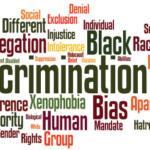Rather, the great thing about the human experience is that we have the capacity to grow and to challenge ourselves by looking deep into our own souls and finding an even greater sense of humanity: By listening to stories and experiences with open ears and open hearts and open minds, we can generate empathy and kindness. We can choose to challenge hegemonic assumptions about why things are the way they are and take steps, such as eschewing microaggressions in lieu of microaffirmations and microinterventions, to remake our world to be a more equitable and inclusive place. We can take responsibility for actions that we have taken, both knowingly and unknowingly, and commit to both personal and systemic change and transformation. We can clarify our sense of privilege and lend those privileges toward greater equity in the world through the smallest actions snowballing into the largest impacts. And, with as much emphasis, we can be mindful that passivity, neutrality and inaction can be as detrimental and destructive as any action.
As with everything regarding microaggressions, none of this is easy to navigate. No amount of mandatory training modules by human resources can reform the heart. Only deeply personal reflection and rheumination can help provide clarity so we can more transparently tackle the issue of microaggressions.
 Bharat Kumar, MD, MME, FACP, FAAAAI, RhMSUS, is the director of the rheumatology fellowship training program at the University of Iowa, Iowa City, and the physician editor of The Rheumatologist. Follow him on X @BharatKumarMD.
Bharat Kumar, MD, MME, FACP, FAAAAI, RhMSUS, is the director of the rheumatology fellowship training program at the University of Iowa, Iowa City, and the physician editor of The Rheumatologist. Follow him on X @BharatKumarMD.
References
- Paludi MA (2012). Managing Diversity in Today’s Workplace: Strategies for Employees and Employers. U.S.: Bloomsbury Publishing. ISBN 978-0-313-39317-4.
- Badrinathan S, Kapur D, Kay J, Vaishnav M. Social Realities of Indian Americans: Results from the 2020 Indian American Attitudes Survey. Carnegie Endowment for Internation Peace. 2021 Jun 9. http://tinyurl.com/3scnf255.
- Arshad M. Intersectionality within the Indian American experience. Harvard Political Review. 2021 Sep 21. https://harvardpolitics.com/indian-american-experience.
- Sue DW, Alsaidi S, Awad MN, et al. Disarming racial microaggressions: Microintervention strategies for targets, white allies, and bystanders. Am Psychol. 2019 Jan;74(1):128–142.
- Rowe M. Micro-affirmations and micro-inequities. Journal of the International Ombudsman Association. 2008 Mar;1(1):45–48.
- Epler MB. How to be an ally in the workplace: 13 ways to do it. Ideas.Ted.com. 2021 Oct 21. https://ideas.ted.com/how-to-be-an-ally-in-the-workplace-13-ways-to-do-it.


